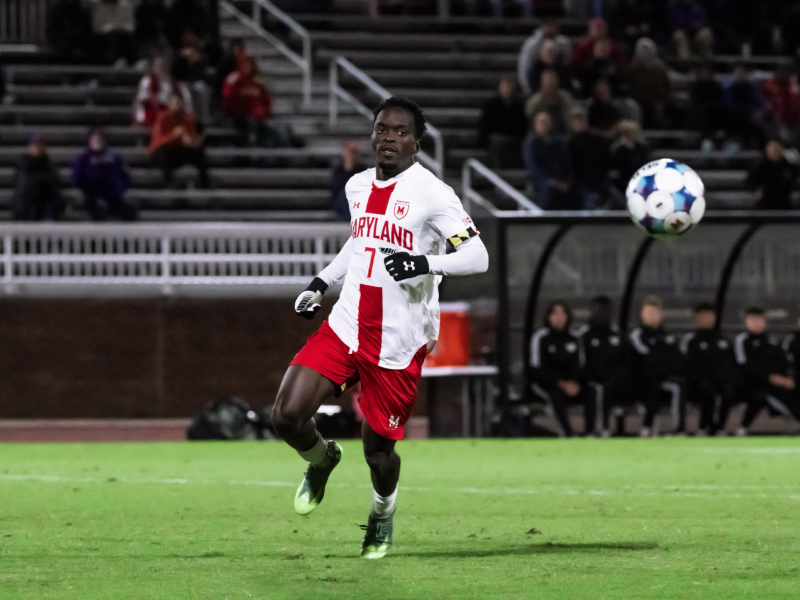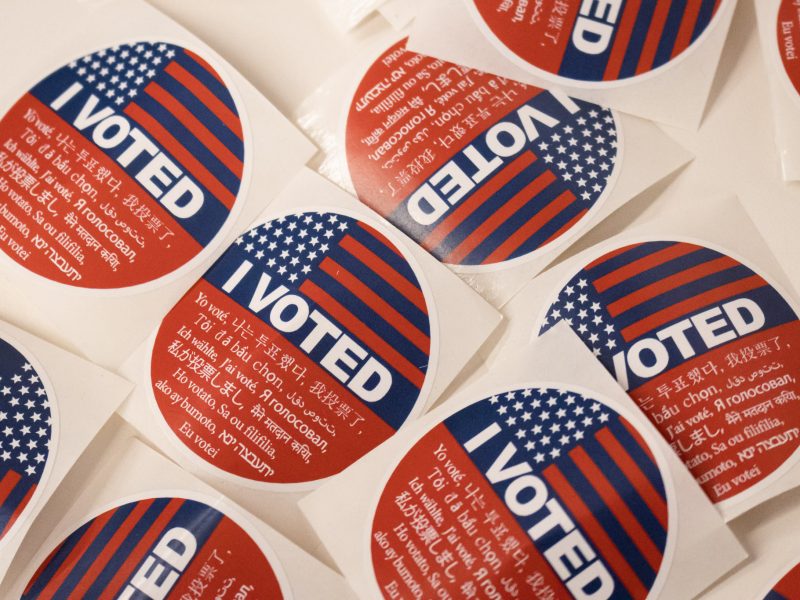Slap. Kick. Curse. Punch.
The words seem to bleed from the beige T-shirt hanging limply on a clothesline.
“I can’t hear the words ‘I love you’ without fear,” it screams in black and red letters. “You made ‘I love you’ hurt.”
The shirt is one of about 35,000 designed by survivors of domestic violence as part of the international Clothesline Project, some of which will be on display today on Hornbake Mall, capping off a month’s worth of initiatives by the university and county to put an end to an all-too-common problem.
About one in five female college students is in an abusive relationship, and about one in three has been previously, according to a 2005 study funded by the National Institute of Justice.
The University Health Center’s victim advocate, Cortney Fisher, said last year she saw 14 students who were victims of “relationship violence” – the term commonly used for domestic violence among young people – and has seen an increase this year. In fact, most domestic violence cases reported are from women aged 16 to 24, according to the National Coalition against Domestic Violence.
“Nobody gets beat up on the first date,” Fisher said. “It builds up over time. It starts with a put-down or bad language and it becomes a controlling behavior.”
In response, the university’s Family Service Center introduced an inexpensive couples counseling service designed to help couples communicate better and reduce negative interactions. The service, which is not limited to students, is conducted by family studies graduate students and costs $20 per 90-minute session.
This sort of prevention program, which involves the prospective abuser as well as the victim, is more effective than the most common approach to preventing domestic violence, which is to educate only women, Fisher said.
“How do you tell a woman not to get raped?” she asked. “The best thing we can do is to educate men.”
But the stigma associated with seeking counseling prevents many people from getting help, just as feelings of love and embarrassment make it difficult for many women to leave abusive relationships.
“The partners don’t hate each other,” Fisher explained. “They probably love each other very much.”
That’s why advocates like violence prevention lecturer Jackson Katz are taking a broader approach by attacking societal attitudes that set the stage for domestic violence.
“It’s not about girls and women, but about boys and men,” Katz said at a talk at the university Monday night. Men are continually facing harsh scrutiny and being labeled “gay” or “soft” when they oppose domestic violence, and, as a result, end up being “either hostile or unsympathetic,” he said.
A way to change this would be to revolutionize the gender role messages we convey to young boys through television and parenting, something Katz aims to do with his educational videos “Tough Guise” and “Wrestling with Manhood: Boys, Bullying and Violence.”
Meanwhile, Prince George’s County used October, National Domestic Violence Awareness Month, to take both a preventative and a punitive approach to what has also been a prevalent problem in the county.
After Ernestine Bunn Dyson was killed in 2003 at her home in Greenbelt hours after her appeal to a court for protection from her husband was denied, county officials formed a task force in order to combat domestic violence. Prince George’s State’s Attorney Glenn Ivey called on the faith community to devote at least one sermon to the topic of domestic violence.
In 2005, more than 5,000 requests for protective orders against domestic violence were filed in local courts, with the orders issued in many cases, according to a Prince George’s county press release. The press release also stated that during the past four years, County Executive Jack Johnson has appropriated more than $11 million toward programs to prevent domestic violence and to help victims of the crime.
After Essence magazine published an article in October saying the county’s domestic violence rate is second only to Baltimore City, the county Sheriff’s Department conducted a Family Violence Warrant Sweep, in which they made 73 arrests, according to Sheriff Michael Jackson.
“The increase in arrests this year shows that more people are confident enough to come forward and report domestic violence,” Jackson said in a press release. “This sends a strong message to those who would commit these types of crimes against others.”
Contact reporters Carrie Wells and Naomi Unno at newsdesk@dbk.umd.edu.


